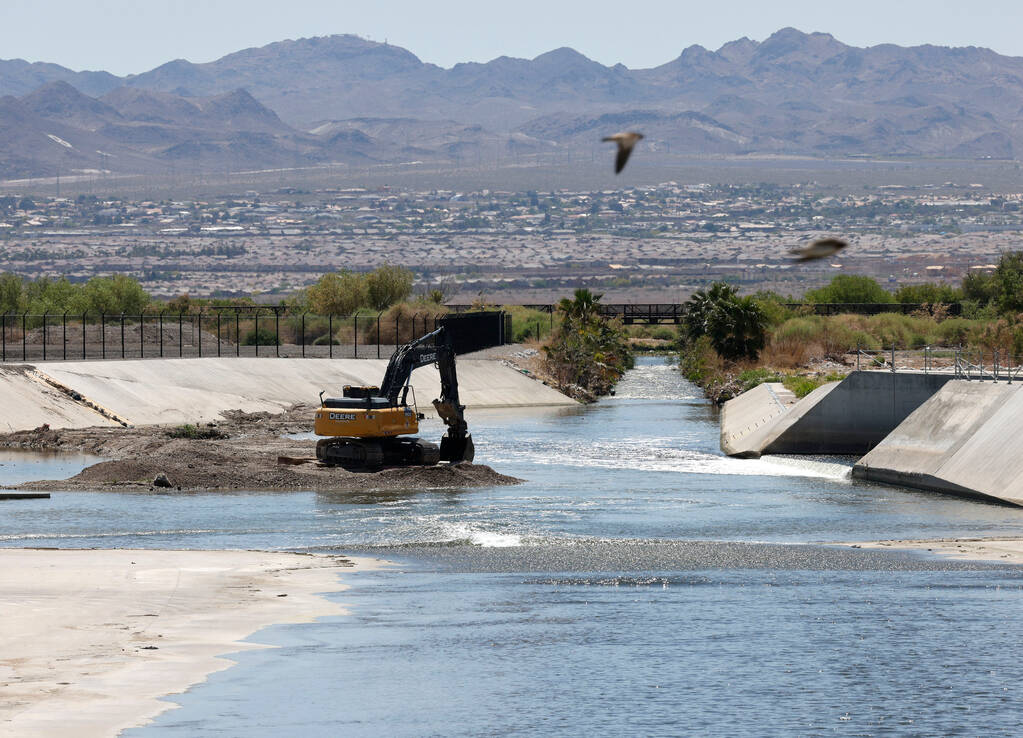EPA reaches settlement with Las Vegas over wastewater compliance

The U.S. Environmental Protection Agency has reached a settlement agreement with the city of Las Vegas over two wastewater treatment centers in the valley that failed to meet federal clean water standards.
Federal regulators in October found that Las Vegas’ wastewater pretreatment program “was not as stringent” as is required by the federal Clean Water Act, the agency said in a news release Thursday.
The issues identified by federal regulators were largely administrative in nature, according to the agreement. The EPA alleged that the city had failed to update its legal authority to be at least as rigorous as the federal regulations and that its permitting ordinances were insufficient.
“The city’s deficiencies are procedural in nature and not in any way a direct discharge violation by our water pollution control facilities to the Las Vegas Wash or Lake Mead,” city spokesman Jace Radke said in an email.
“The city of Las Vegas wastewater treatment facilities have consecutively received the Platinum Peak Performance Award from the National Association of Clean Water Agencies for the last 24 years. This award is given to facilities with a consistent record of full compliance with their wastewater discharge permits,” Radke added.
The city operates the Las Vegas Water Pollution Control Facility and the Durango Hills Resource Center, which discharge the city’s treated wastewater into the Las Vegas Wash, eventually making its way to Lake Mead.
“EPA is partnering with the City of Las Vegas to ensure wastewater discharges meet the highest standards,” EPA Pacific Southwest Regional Administrator Martha Guzman said in a statement. “Through this order, EPA is working with the local community to protect Lake Mead and the Las Vegas Wash.”
As part of the agreement, the city agreed to bring the facilities into federal compliance, including submitting a new study and a revised sewer use ordinance to the EPA by the end of the year, the agency said. The city also is required to revise its local limits and industrial wastewater discharge permits.
Radke said these changes could result in shifting some sewer treatment costs to the business owner as opposed to the city treatment plant.
The compliance issues at the facilities were first identified in a 2017 compliance audit, and the EPA said in its administrative order that the facility had failed to rectify those violations of the Clean Water Act.
Contact Colton Lochhead at clochhead@reviewjournal.com. Follow @ColtonLochhead on Twitter.